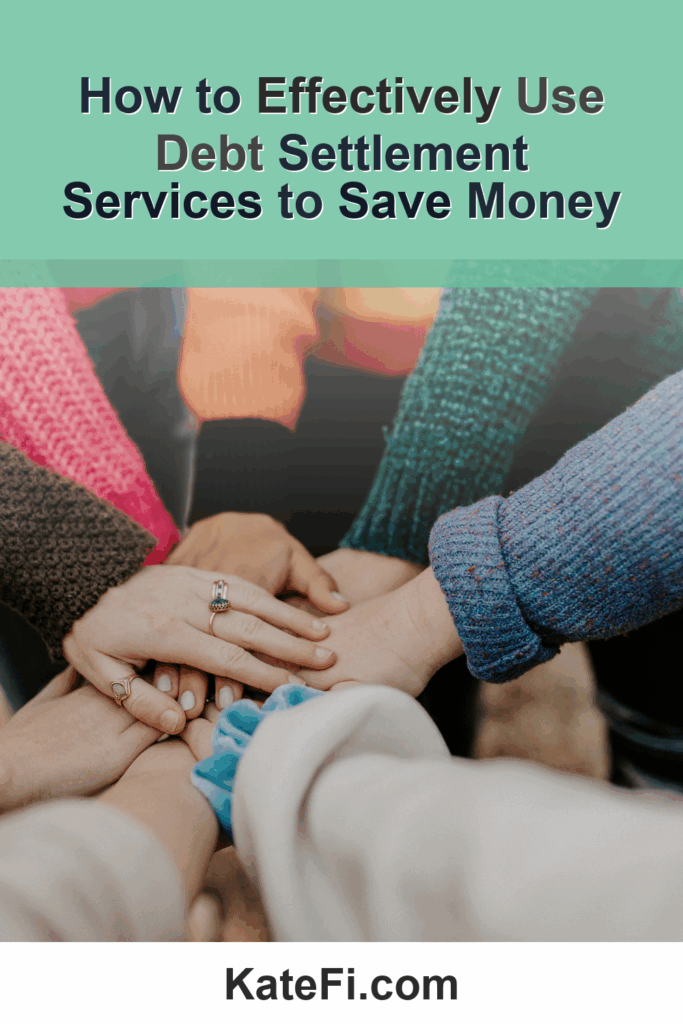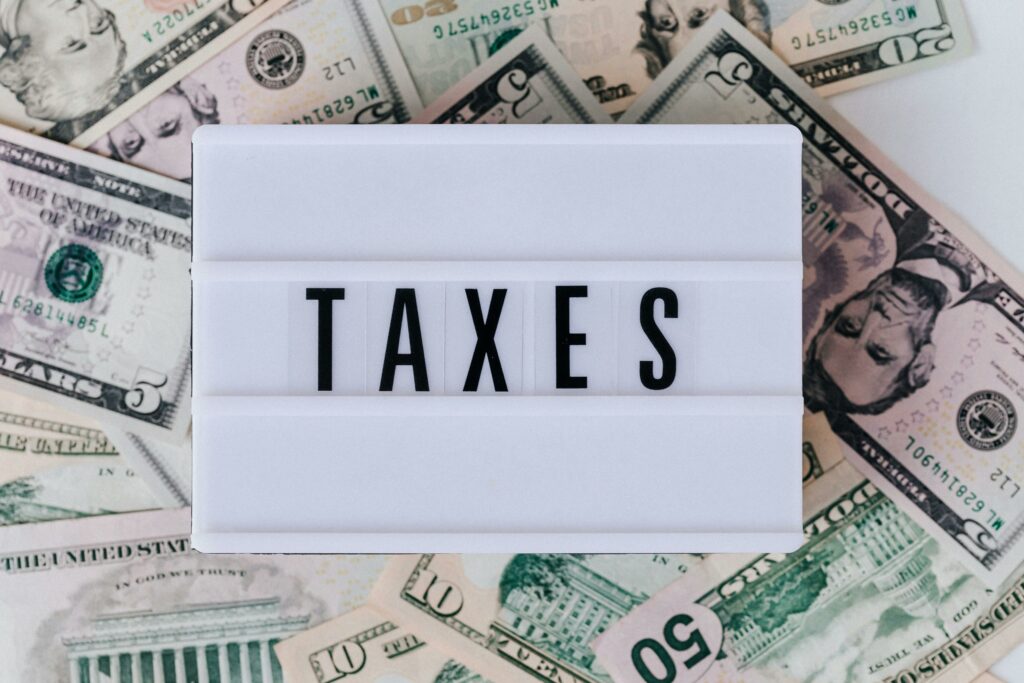6 Financial Tools to Help You Manage Your Debt More Effectively
Managing debt can often feel overwhelming. However, with the right tools and strategies, you can take control of your finances and pave your way towards a more secure financial future. In this article, we’ll explore six essential financial tools that can help you manage your debt more effectively, answer common questions, and discuss when bankruptcy consultations may make sense for your situation.
Love our content? Show your support by following us — pretty please!🥺
FOLLOW ON PINTEREST
Hi! I’m Kate, the face behind KateFi.com—a blog all about making life easier and more affordable.
1. Budgeting Apps: Your Spending Guide
Lower Your Unsecured Debt
If you have $5,000+ in credit card or personal loan debt, a free consult can review options like settlement or hardship plans.
- One-on-one call to review your debts and goals
- See potential monthly payment reductions
- No obligation to enroll
Not available in IL, KS, OR, TN, UT, WV.
Q: What are budgeting apps, and how can they help me manage my debt?
A: Budgeting apps are digital tools designed to help you track your income and expenses, set spending limits, and monitor your progress toward your financial goals. They can help you identify areas where you may be overspending and reallocate funds to pay down your debt.
Q: Which budgeting apps do you recommend?
A: Popular budgeting apps include Mint, YNAB (You Need a Budget), and PocketGuard. Each app offers unique features, so explore them to find one that fits your needs.
✅ See If You Qualify for Debt Relief
2. Debt Snowball Calculator: A Motivational Tool
👉 Start Your Free Debt Relief Review
Not available in IL, KS, OR, TN, UT, WV.
Q: What is the Debt Snowball method?
A: The Debt Snowball method involves paying off your smallest debts first while making minimum payments on larger debts. This approach can boost your motivation as you see debts eliminated.
Q: How does a Debt Snowball calculator work?
A: A Debt Snowball calculator helps you visualize your payoff plan, showing the time it will take to eliminate debts and the amount of interest you’ll save. This can keep you motivated as you make progress.
Q: Are there other debt repayment methods?
A: Yes, other methods include the Debt Avalanche (prioritizing high-interest debts) and debt consolidation. Consider your situation when choosing a strategy.
3. Debt Management Plan (DMP): Structured Support
Understand pros/cons of settlement vs consolidation vs DMP for your exact mix of debts.
Not available in IL, KS, OR, TN, UT, WV.
Q: What is a Debt Management Plan (DMP)?
A: A DMP is a structured repayment plan created with the help of a credit counseling agency. They negotiate lower interest rates and monthly payments on your behalf, allowing you to pay off your debt over time.
Q: How do I set up a DMP?
A: Start by contacting a reputable credit counseling agency to evaluate your financial situation. They’ll help you create a customized plan and manage your payments.
Q: What’s the catch? Are there fees?
A: While DMPs often come with fees, they may be lower than your current interest rates. It’s essential to understand the costs involved before enrolling.
✅ See If You Qualify for Debt Relief
4. Credit Counseling: Guidance from Professionals
What You’ll Learn on the Call
- Estimated timeline and monthly payment range
- How credit may be affected in the short term
- What documents to gather to move faster
Not available in IL, KS, OR, TN, UT, WV.
Q: What is credit counseling?
A: Credit counseling involves working with a certified professional who can help you understand your financial situation, create a budget, and develop a plan to manage your debt.
Q: How can credit counseling help me?
A: A credit counselor can provide personalized advice, help you understand your rights as a borrower, and suggest the best strategies for your unique financial situation.
Q: Are credit counseling services free?
A: Many credit counseling services offer free consultations, but ongoing services may come with a fee. It’s essential to review the terms before proceeding.
5. Debt Consolidation Loans: Simplifying Payments
Q: What are debt consolidation loans?
A: A debt consolidation loan is a single loan used to pay off multiple debts. This can simplify your payments, often at a lower interest rate.
Q: Who should consider debt consolidation?
A: Debt consolidation is a viable option for those with good credit scores who can secure a low-interest rate. It’s important to assess whether this strategy will save you money overall.
Q: What are the risks involved?
A: If you fail to make payments on your new loan, you may face penalties. Additionally, consolidating doesn’t address the root cause of your debt; it’s essential to change your spending habits.
✅ See If You Qualify for Debt Relief
6. Bankruptcy Consultation: Understanding Your Options
Q: When should I consider a bankruptcy consultation?
A: If you’re struggling to make minimum payments, receiving collection calls, or facing wage garnishment, it may be time to consult with a bankruptcy attorney. They can help you explore your options and decide if bankruptcy is the right choice for you.
Q: What are the types of bankruptcy?
A: The most common types for individuals are Chapter 7 (liquidation) and Chapter 13 (reorganization). Each has different requirements and implications for your assets.
Q: Will bankruptcy affect my credit?
A: Yes, bankruptcy can have a significant impact on your credit score and will remain on your credit report for up to 10 years. However, it may provide a fresh start if managed correctly.
Q: What documents do I need to gather for a bankruptcy consultation?
A: Prepare recent pay stubs, tax returns, bank statements, and a list of all debts and assets. Having these documents ready will allow for a more thorough evaluation of your situation.
Practical Checklist for Debt Management
To help you get started, here’s a simple checklist to follow as you begin managing your debt:
- Assess Your Current Financial Situation:
- Gather your income statements.
- List all your debts, including balances and interest rates.
- Identify your monthly expenses.
- Choose Financial Tools:
- Select a budgeting app that fits your lifestyle.
- Consider whether a DMP or credit counseling is right for you.
- Explore consolidation loan options.
- Set Realistic Goals:
- Determine how much you can allocate to debt repayment each month.
- Set specific milestones for paying off debts.
- Consult a Professional:
- If overwhelmed, consider a credit counselor or debt relief expert.
- Discuss your options and gather information about bankruptcy if necessary.
- Monitor Progress:
- Use your budgeting app to track spending and savings.
- Adjust your plan as necessary based on your progress.
Comparison of Debt Management Strategies
| Strategy | Pros | Cons |
|---|---|---|
| Budgeting Apps | Easy to use, helps track spending | Requires discipline and commitment |
| Debt Snowball | Motivation through quick wins | Can be slower if high-interest debt remains |
| Debt Management Plan | Professional guidance | May have fees; commitment to a structured plan required |
| Credit Counseling | Personalized advice | Quality varies by agency; may incur costs |
| Debt Consolidation | Simplifies payments | May not address spending issues, possible fees |
| Bankruptcy | Fresh financial start | Significant credit impact, complex process |
In conclusion, managing debt effectively requires a combination of the right tools, strategies, and, at times, professional guidance. Whether you choose to use budgeting apps, seek credit counseling, or consider a bankruptcy consultation, remember that you don’t have to navigate this journey alone.
If you’re feeling overwhelmed and need personalized guidance, get a free consultation to review your options. We’re here to help you take the next steps toward financial freedom.
Important: This content is for education only—not legal, tax, or financial advice. Results and eligible programs vary by situation and state. Fees apply if you enroll and complete a program. Debt relief can affect credit; missed payments may lead to collections/lawsuits. Not available in IL, KS, OR, TN, UT, WV.
Remember, taking control of your debt is a journey that starts with a single step. Make that step today by reaching out for assistance, and together we can find a solution that fits your needs.






















